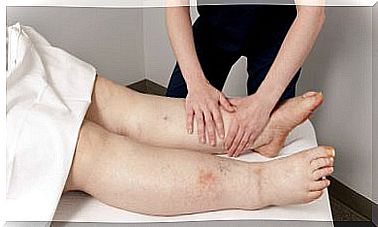Anosmia Or Loss Of Smell: What Can Cause It?
Anosmia refers to the complete loss of the sense of smell. Later we will see what situations can cause it. It is known not to be a very common condition in adults, although the mildest form of decreased sense of smell, called hyposmia, is. Nor is anosmia very common in newborns – congenital anosmia.
This inability to detect odors not only affects the possibility of enjoying pleasant and pleasant scents, be it the aroma of flowers, a rich perfume, a cup of coffee or a favorite food. It can also put a person in danger due to the inability to detect potentially harmful odors, such as chemicals, gas leaks, or spoiled food.
In addition, the loss of smell also affects the sense of taste. Both senses, that is, smell and taste, interact when distinguishing certain flavors.
In itself, it is not a serious condition, but it may be part of the symptoms of a larger disease. Anosmia, as we will see immediately, alters the quality of life.
Anosmia as a problem
Loss of smell makes it difficult to enjoy some of life’s pleasures, which can lead to frustration, or even depression in some people with anosmia. Ultimately, there is a decrease in the quality of life.
Sometimes it can cause changes in eating habits. This leads to weight loss, sometimes, and eventual malnutrition due to the lack of taste perception in food. The person loses interest in food because they do not perceive its taste.
At the other extreme, you can become overweight. There is also a risk of increased blood pressure due to excess salt added to the diet, in order to add flavor to food.

How do we feel smells?
The layer that lines the nose internally is called the mucous membrane. In this membrane there are receptors in charge of detecting odors and sending information through neurons to the brain.
When you breathe, there are microscopic molecules that are released from the different substances that surround us and that come into contact with the receptors in charge of detecting odors. Once there, the information continues to the brain, where the smell will be identified.
In turn, information from the sense of taste will also reach the brain, and both will help to identify many flavors. Without the characteristic odor of each food, the flavors may seem bland. In addition, touch and sight also participate in the identification of flavors.
What can cause anosmia or loss of smell?
Let’s look at some of the causes that may be behind anosmia or loss of smell:
- Nose and upper respiratory ailments: such as colds, sinusitis, flu, seasonal allergies.
- Brain trauma
- Nasal tumors or polyps
- Smoking.
- Neurodegenerative diseases: such as Alzheimer’s disease, multiple sclerosis, or Parkinson’s disease.
- Consumption of some medications: some antibiotics and antihypertensives.
- Exposure to chemicals: either insecticides or solvents that can damage the nasal mucous membrane.
- Radiation: that which is located in the head and neck region.
It should be noted that normal aging can cause a decrease or even loss of smell. This is explained by the decrease in neurons that send information from receptors that detect odors to the brain. This loss can increase as the years go by.

Can anosmia be treated?
Anosmia or loss of smell is not a disease in itself, so it does not have a specific treatment. Its approach is based on detecting what the cause is and treating it, if this is possible.
Doctors can treat conditions of the upper respiratory tract and nose, can advise on smoking cessation, remove polyps or tumors, and what corresponds to each cause. Sometimes it will be a temporary condition, and therefore reversible, and at other times it will be a chronic and irreversible condition.
Searching for the cause of anosmia is intended to reverse it, although partial or complete recovery of the sense of smell is not always achieved. It should be noted the importance of implementing psychological support in those cases that require it.
If you have doubts or have perceived symptoms compatible with the lack of the sense of smell, or a decrease in it, make a consultation. The most appropriate thing would be to contact a nose, throat and ear specialist to start the tests.









